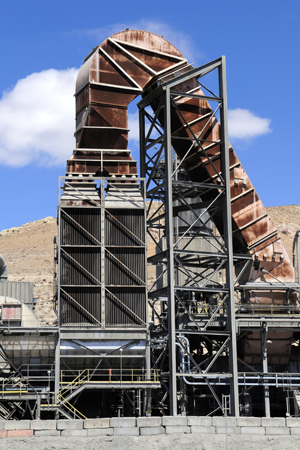 Increasingly stringent environmental regulations require
higher performance and greater reliability for new air
pollution control (APC) systems. Existing APC systems become
subject to new requirements for monitoring, recordkeeping, and
reporting
as new deadlines and thresholds are developed by agencies.
Failure to comply can mean significant penalties for the APC
system owner and/or operator. Therefore, it is imperative for
owner/operators to carefully plan new APC system projectsand to
assure compliance of existing APC systems. RTP ’s services for APC system projects are
particularly well-suited for assisting clients with these efforts Increasingly stringent environmental regulations require
higher performance and greater reliability for new air
pollution control (APC) systems. Existing APC systems become
subject to new requirements for monitoring, recordkeeping, and
reporting
as new deadlines and thresholds are developed by agencies.
Failure to comply can mean significant penalties for the APC
system owner and/or operator. Therefore, it is imperative for
owner/operators to carefully plan new APC system projectsand to
assure compliance of existing APC systems. RTP ’s services for APC system projects are
particularly well-suited for assisting clients with these efforts
RTP’s extensive knowledge of APC requirements, diverse
project background and technical expertise can assist you with
existing and new APC systems. Typical activities associated
with existing APC systems includes, but is not limited
to, troubleshooting, the development of
monitoring, recordkeeping and reporting protocols and compliance
systems. RTP can also provide operator training in
operation, maintenance and troubleshooting of existing
equipment. RTP’s knowledgeable staff can also assist
you with revamps, upgrades and expansions
to your existing APC system.
The services provided for new APC systems are similar to those
described above, but often a little broader in scope. This
is because for new APC systems it is
important to identify a cost-effective and feasible application
specific to the facility. Activities often include defining emission characteristics, such as flow rate,
temperature, pressure, and composition, identifying
APC technology alternatives and performing
both technical and economic evaluations of alternatives with recommendations. Once an APC system is selected RTP can then assist with a
review of
process flow diagrams and piping and
instrumentation diagrams, the development
of
duty specifications for major equipment items
and the preparation of pre-construction air permit applications. Once approvals are obtained, RTP can coordinate with the
general installation contractor selected by client
as well as prepare a
performance test protocol and supervise necessary
performance testing
after start-up.
Some examples of APC system technologies involved in recently
completed projects include:
-
Regenerative, thermal and catalytic fume oxidizers;
-
Wet scrubbers;
-
Carbon adsorbers;
-
Condensers;
-
Continuous emission monitors;
-
Mist eliminators;
-
Capture hoods and duct work;
-
Electrostatic precipitators; and
-
Fabric filters.
RTP’s services include the preparation of RACT, BACT, LAER
and MACT determinations for a variety of source categories.
RTP utilizes the extensive resources available from EPA, propriety
equipment vendors, trade associations, and other available
information to perform complete analyses to meet client and
regulatory demands.
|